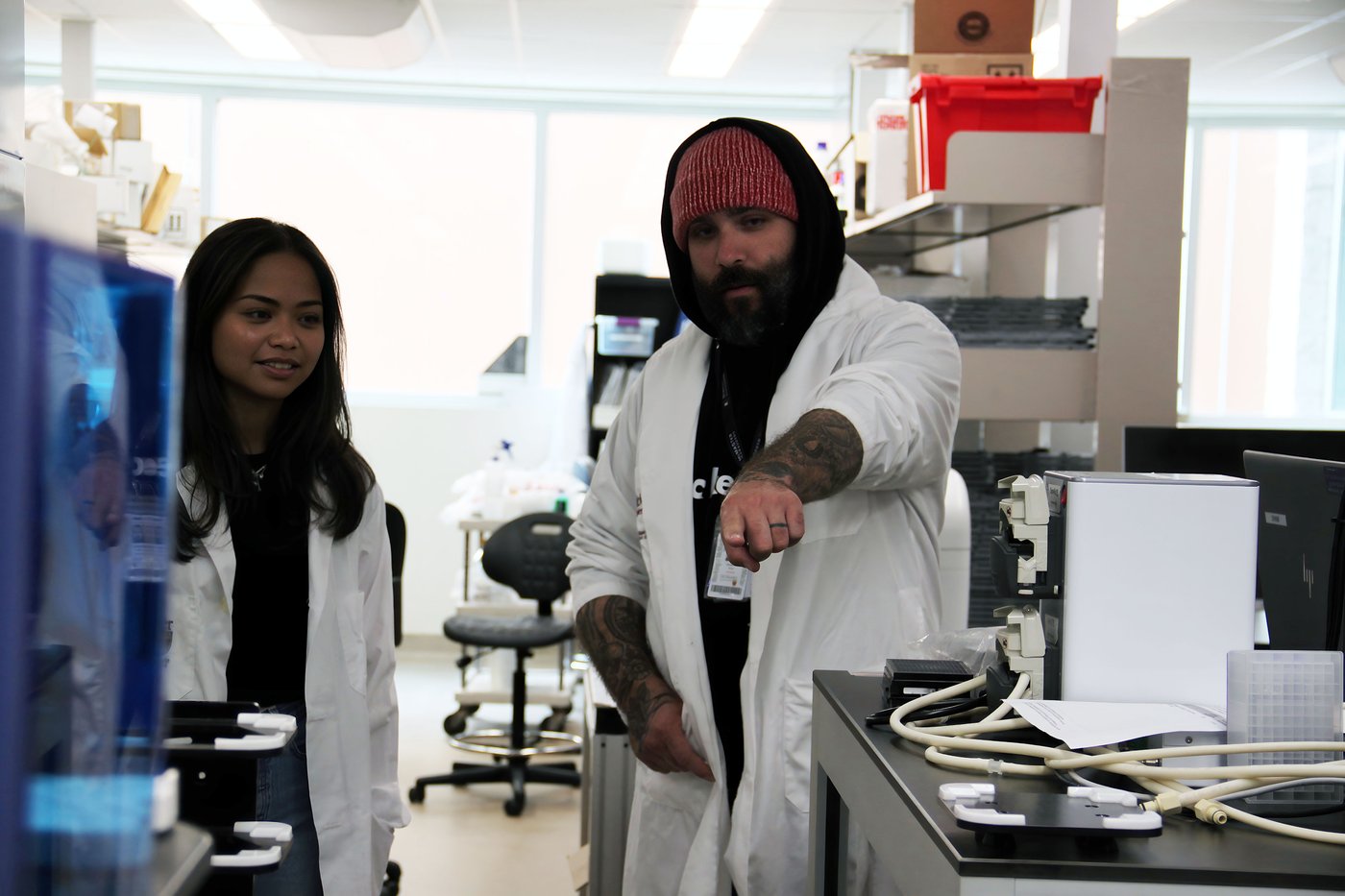Science
AI Revolutionizes Antibiotic Development for Bowel Disease

A researcher from McMaster University in Hamilton has leveraged artificial intelligence (AI) to potentially transform treatment options for Crohn’s disease and inflammatory bowel disease. Jon Stokes, along with his team and collaborators from the Massachusetts Institute of Technology, successfully identified a new antibiotic treatment in under six months, a process that typically takes years and costs millions.
Utilizing AI sequencing technology, Stokes’ lab completed the initial stages of antibiotic development for approximately $60,000. Traditionally, the lengthy development period and high costs have posed significant barriers in the pharmaceutical industry. Stokes noted the efficiency of AI in expediting this complex process, suggesting that it could lead to more accessible treatments in the future.
The use of AI in medical research has garnered attention for its potential benefits, provided there is adequate oversight. Wyatt Tessari L’Allié, founder of AI Governance and Safety Canada, emphasized the importance of verifying AI-generated outcomes. He pointed out that while AI applications in healthcare demonstrate promise, the lack of comprehensive AI legislation in Canada, particularly regarding health care, creates challenges. Currently, medical applications of AI are evaluated on a case-by-case basis by Health Canada.
Canada faces one of the highest prevalence rates of inflammatory bowel disease worldwide, with no definitive cure available. The innovative approach taken by Stokes and his team may offer hope to the thousands affected by these conditions.
As researchers continue to explore AI’s capabilities in the medical field, the implications of their findings could extend beyond antibiotics. The ability to streamline drug development through AI could reshape the landscape of pharmaceutical research, making it more efficient and cost-effective.
This report by The Canadian Press was first published on October 5, 2025, highlighting a significant milestone in the intersection of technology and health care. The developments at McMaster University not only showcase the potential of AI but also underscore the necessity for regulatory frameworks that ensure safety and efficacy in medical research.
-

 Science2 months ago
Science2 months agoToyoake City Proposes Daily Two-Hour Smartphone Use Limit
-

 Health2 months ago
Health2 months agoB.C. Review Reveals Urgent Need for Rare-Disease Drug Reforms
-

 Top Stories2 months ago
Top Stories2 months agoPedestrian Fatally Injured in Esquimalt Collision on August 14
-

 Technology2 months ago
Technology2 months agoDark Adventure Game “Bye Sweet Carole” Set for October Release
-

 World2 months ago
World2 months agoJimmy Lai’s Defense Challenges Charges Under National Security Law
-

 Technology2 months ago
Technology2 months agoKonami Revives Iconic Metal Gear Solid Delta Ahead of Release
-

 Technology2 months ago
Technology2 months agoSnapmaker U1 Color 3D Printer Redefines Speed and Sustainability
-

 Technology2 months ago
Technology2 months agoAION Folding Knife: Redefining EDC Design with Premium Materials
-

 Technology2 months ago
Technology2 months agoSolve Today’s Wordle Challenge: Hints and Answer for August 19
-

 Business2 months ago
Business2 months agoGordon Murray Automotive Unveils S1 LM and Le Mans GTR at Monterey
-

 Lifestyle2 months ago
Lifestyle2 months agoVictoria’s Pop-Up Shop Shines Light on B.C.’s Wolf Cull
-

 Technology2 months ago
Technology2 months agoApple Expands Self-Service Repair Program to Canada









